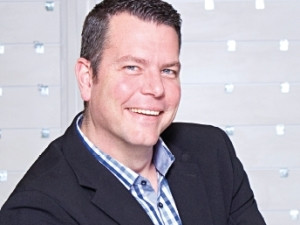
On 16 April this year, multinational company Samsung launched a first in SA by announcing its partnership with AlwaysOn, to give users of its devices free bandwidth in 1 200 WiFi hotspots around the country.
Samsung's thinking is simple: give users some free bandwidth, allow them to explore what their devices can do when connected, and thus establish a usage pattern.
This deal is a trend we could see replicated around the world.
World Wide Worx's Arthur Goldstuck says he's never before heard of a device manufacturer partnering with a WiFi hotspot operator.
"It probably never occurred to anyone that it would be a natural fit," says Goldstuck. "We'll probably see more and more deals like this."
"As far as we're aware, this is the first deal of this magnitude in the world," says AlwaysOn's CEO, Jaco Van Tonder.
In Ireland, mobile player Cicero Networks has inked a deal with Quiconnect, which has gone as far as having an automated authentication process built into the CiceroPhone, a handset that intelligently routes calls over the best available network - WiFi, 3G, WiMAX or cellular.
As far as we're aware, this is the first deal of this magnitude in the world. Jaco Van Tonder, AlwaysOn.
Quiconnect's Hotspot Connector solution makes it seamless for users to make VOIP calls at public hotspots.
International WiFi hotspot operator Boingo has recently signed deals with AT&T, Microsoft, Google and the Competitive Carriers' Association to offer WiFi to consumers.
So it's interesting that, once again, a data offering in SA is a trendsetter, just like BlackBerry's BIS offering was a few years ago.
Samsung is the top mobile phone manufacturer in the world, in terms of volumes, but in SA, it's still a much smaller player, with BlackBerry and Nokia dominating the market.
Huge impact
According to World Wide Worx's The Mobile Consumer in SA 2012 report, Nokia has a 51% market share, with BlackBerry growing rapidly to 18% and Samsung is in decline, having fallen to 18%.
Of course, a lot has changed since June 2012, when the research behind World Wide Worx's report was undertaken.
Samsung has since launched the S3 and, recently, the S4, two handsets that are challenging Apple and BlackBerry in the smartphone market and doing exceptionally well sales-wise.
We've specifically focused on the youth and I think that's behind some of the rapid adoption of our products. Craige Fleischer, Samsung South Africa.
Goldstuck says the Galaxy Pocket, a full feature phone that has the best Samsung technology at an affordable price of R899, has also had a huge impact in SA.
He expects to see a reversal of fortunes for Samsung in 2013.
Samsung SA's director of mobile communications, Craige Fleischer, says the group has seen phenomenal growth in SA over the last 20 months.
He believes the big driver of that growth in the Android segment was the launch of the Samsung S3 phone last year.
Regarding the deal with AlwaysOn, Fleischer says the idea is not to replace the mobile players on the data front, but, rather, to give consumers a safe taste of what they can do with the data on their devices and then allow them to grow into the online space.
The data space
"Someone who is used to a feature phone and has just upgraded to a smartphone won't be used to push e-mail and social media. They understand there's this thing called data, but they don't know what a megabyte or a kilobyte is," says Fleischer. "The relationship with AlwaysOn aims to help ease people into the data space."
He says Samsung is hoping that AlwaysOn will help convince consumers to buy its devices, an added weapon in the battle against its competitors.
Goldstuck, an AlwaysOn user before Samsung offered the deal, believes it will definitely be an incentive for consumers looking to buy new phones or tablets, but probably not the key factor.
AlwaysOn's Van Tonder says the WiFi hotspot company was looking to partner with a device manufacturer, when Samsung came knocking.
AlwaysOn has two main markets: the upwardly mobile market that jets around the country and stays in hotels, and the youth or student market that uses the hotspots while eating at Wimpy or McDonald's or grabbing a coffee.
Fleischer says this youth market, the under 30s who make up 50% of SA's population, is key for Samsung's own ambitions.
"We've specifically focused on the youth and I think that's behind some of the rapid adoption of our products," he says.
He adds that the deal is not just a South African initiative; it's an African initiative, which is why AlwaysOn made great partners.
"It has an African footprint and roaming agreements around the continent," says Fleischer. "That, primarily, is what made it so attractive to Samsung."
First published in the July 2013 issue of ITWeb Brainstorm magazine.
Share